Imagine finding a prime piece of real estate downtown, already equipped with roads and utilities, for a fraction of the cost of a new plot. That is similar to what an expired domain can offer your business online. It’s a website address someone let go of, but it might still have valuable history and authority. The question is, are you buying a treasure or someone else’s problem?
For small business owners, navigating the world of search engine optimization (SEO) can feel complex. You hear about keywords, backlinks, and now, expired domains. This guide will help you understand what expired domains are, the potential they hold, and the risks involved. We will explore how to find a hidden opportunity and avoid an SEO nightmare.
What Exactly is an Expired Domain?
A domain name is your website’s address on the internet, like moduet.com. People or businesses register these names for a specific period, usually one to ten years. When that registration period ends and the owner does not renew it, the domain expires.
After expiration, it goes through a short grace period where the original owner can still reclaim it. If they don’t, it enters an auction phase and eventually becomes available for public registration. This is where you can step in. You could acquire a domain that has been active for years, potentially bringing its established history with it.
The Hidden Opportunity: Why Consider an Expired Domain?
Buying a brand new domain is like starting from scratch. You have no online history, no authority, and no existing links pointing to your site. An expired domain can give you a significant head start.
Instant SEO Authority
Search engines like Google trust older, established websites more than new ones. An expired domain with a clean history carries that trust with it. This is often measured by metrics like Domain Authority (DA) or Domain Rating (DR). A higher score means more trust, which can help your new site rank faster.
Think of it like this: a new business has to build its reputation from zero. An established business, even under new ownership, already has a reputation in the community. An expired domain can offer that pre built reputation online.
Valuable Backlinks
Backlinks are links from other websites to your site. They are a crucial factor in SEO because they act like votes of confidence. When a reputable site links to you, it tells search engines that your content is valuable.
A quality expired domain often comes with a portfolio of existing backlinks. These links were built over years by the previous owner. If you acquire the domain, those links can be redirected to your new website, passing along their SEO power. This saves you the immense time and effort required to build a similar backlink profile from nothing.
A Real World Example
Let’s consider a small bakery. Instead of starting with a brand new domain, the owner finds an expired domain from a popular local food blog that shut down. This blog had links from local news sites, foodie forums, and community pages. By acquiring that domain and redirecting the old blog posts to relevant pages on the new bakery site (like a post about cakes to the bakery’s cake page), the bakery instantly gains credibility and traffic from those established links.
The SEO Nightmare: What are the Risks?
While the benefits are tempting, expired domains come with serious risks. Without careful checking, you could inherit a digital mess that harms your business more than it helps.
A Spammy Past
Not all history is good history. The previous owner might have used unethical “black hat” SEO tactics. This could include buying thousands of low quality links from spammy websites or using the site for questionable purposes. If the domain has a history of spam, Google may have penalized it.
Acquiring a penalized domain is like buying a restaurant that was shut down for health code violations. No matter how much you clean it up, the bad reputation can be hard to shake. Your new site could struggle to rank or even be completely removed from search results.
Irrelevant Backlinks
The domain’s backlinks might be plentiful but completely wrong for your business. Imagine you are a financial advisor, but the expired domain you bought was for a video game blog. Links from gaming websites will not help you attract clients looking for financial advice. In fact, they can confuse search engines about what your business actually does, hurting your ability to rank for relevant terms.
Trademark Infringement
Some expired domains may be tied to a trademarked brand name. Even if the domain is available, using it could land you in legal trouble. Before you purchase any expired domain, you must research to ensure you are not infringing on someone else’s trademark. A simple brand name search can save you from a major legal headache.
Your Actionable Guide to Finding a Good Expired Domain
If you decide to explore expired domains, you need a clear process to separate the gems from the junk.
1. Know What You’re Looking For
First, define your criteria. Look for domains relevant to your industry or location. A local plumber in Seattle would benefit more from a domain previously owned by another Seattle home service business than one from a national pet food company. Relevance is key.
2. Use Reliable Tools
Several online platforms specialize in listing expired and expiring domains, such as GoDaddy Auctions or DropCatch. These sites allow you to search for domains and see basic information. You will also need SEO tools like Ahrefs or Moz to dig deeper into a domain’s history.
3. Check the Domain’s History
This is the most important step. Use the Wayback Machine (archive.org) to see what the website looked like in the past. Was it a legitimate business or a spammy link farm? This visual check can reveal a lot about the domain’s past life.
4. Analyze the Backlink Profile
Use an SEO tool to analyze the domain’s backlinks. Ask yourself these questions:
- Are the links from high quality, relevant websites?
- Is the anchor text (the clickable text in a link) natural, or is it spammy?
- Are there any signs of paid, low quality links?
A healthy backlink profile has links from a variety of trusted sources related to your industry. A red flag would be hundreds of links from foreign gambling sites or low quality directories.
5. Check for Google Penalties
There is no simple “penalty checker” tool. The best way to gauge this is to look for sudden, massive drops in organic traffic in its history using an SEO tool. Also, a quick Google search of site:domainname.com can show if the site is still indexed by Google. If no results appear, it may have been penalized and removed.
Should You Buy an Expired Domain?
An expired domain can be a powerful asset for a small business, offering an SEO shortcut that can save you months or even years of work. It can provide immediate authority and a valuable backlink profile that helps you rank higher and faster.
However, the risks are real. A domain with a spammy history or irrelevant backlinks can become a serious SEO nightmare, wasting your money and potentially damaging your brand’s reputation.
For most small business owners, the safest path is to build your brand on a new, clean domain. But if you have the time for proper research or the help of a knowledgeable agency like MoDuet, an expired domain might just be the hidden opportunity you need to get ahead of the competition.
We Want To Talk To You About Your Marketing Goals.
Let’s Supercharge Your Online Growth!












